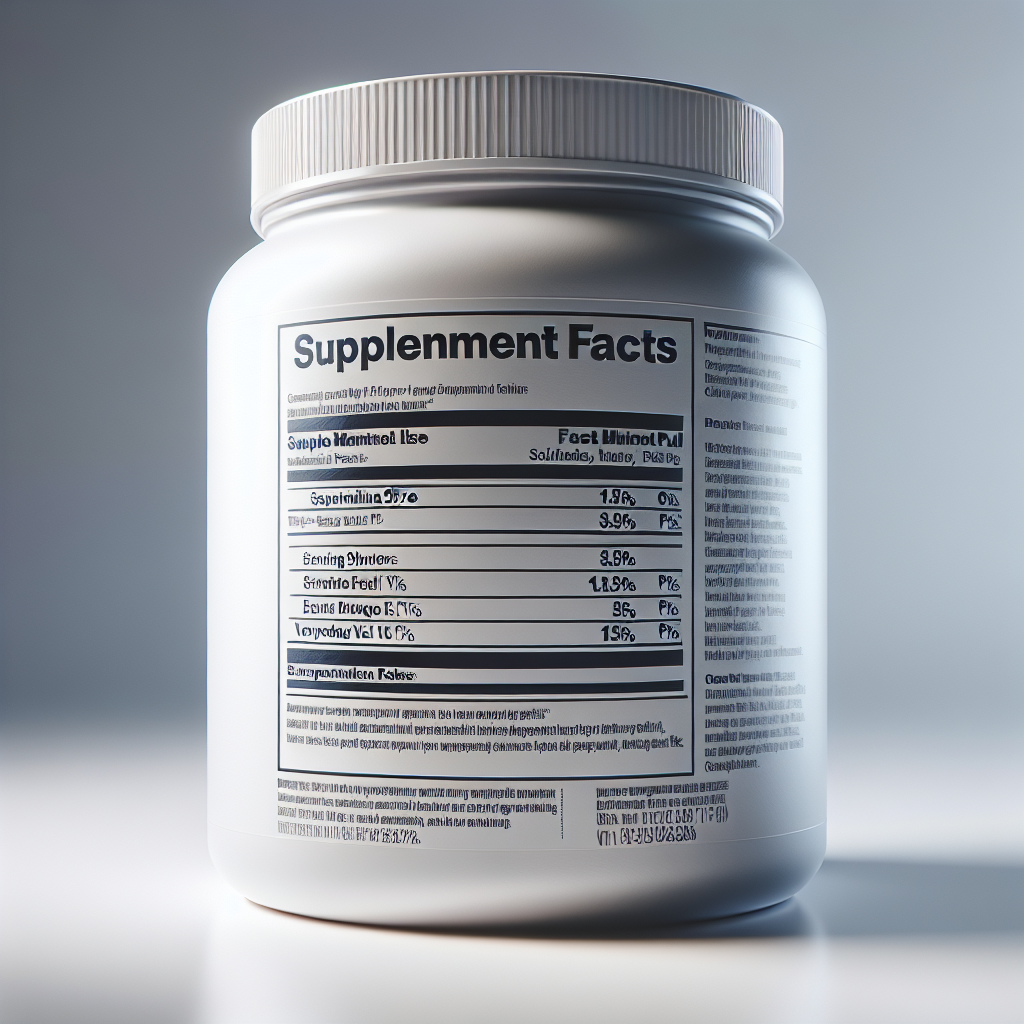In the thriving dietary supplement industry, ignorance isn’t just uncomfortable—it’s expensive. Each year, supplement manufacturers face millions in fines, costly recalls, and devastating reputation damage due to regulatory non-compliance. Yet surprisingly, many companies operate with dangerous blind spots about FDA supplement regulations that govern their business.
“The most expensive mistakes in supplement manufacturing aren’t from what companies do wrong, but from what they don’t know they should be doing,” notes a recent industry compliance report. This knowledge gap isn’t just concerning—it’s financially perilous in an industry projected to reach $230.7 billion globally by 2027.
For manufacturers navigating this complex regulatory landscape, understanding the rules isn’t optional—it’s essential for survival. Let’s explore the critical FDA supplement regulations that many manufacturers overlook and how these oversights could potentially cost them millions.
The Regulatory Framework: Not What Most Manufacturers Think
One of the most pervasive misconceptions plaguing the supplement industry is the belief that dietary supplements face minimal regulation. This dangerous assumption couldn’t be further from truth. While supplements don’t require pre-market approval like pharmaceuticals, they operate under a comprehensive regulatory framework established by the Dietary Supplement Health and Education Act of 1994 (DSHEA).
Under DSHEA, dietary supplements are classified as food products, not drugs—a distinction with profound implications for manufacturers. This classification doesn’t mean less regulation, but rather a different type of oversight tailored to the unique nature of supplements. Understanding this fundamental classification is crucial for making strategic manufacturing decisions that align with regulatory expectations.
Many manufacturers falsely believe the “food” classification means minimal oversight. In reality, the FDA enforces strict guidelines covering everything from ingredient selection to manufacturing processes and labeling requirements. The misconception that supplements face little regulation often leads companies to underinvest in compliance infrastructure—a costly mistake when FDA inspectors arrive.
A particularly expensive misunderstanding involves new dietary ingredients (NDIs). Any ingredient not marketed in the U.S. before October 15, 1994, requires FDA notification with evidence of safety at least 75 days before marketing. Failure to submit proper NDI notifications can result in immediate product recalls and substantial financial penalties—yet many manufacturers remain unaware of this critical requirement.
CGMP Compliance: The Foundation of Quality Manufacturing
Perhaps no area of FDA supplement regulations causes more compliance headaches than Current Good Manufacturing Practices (CGMP). These comprehensive standards outline the systems necessary to ensure supplements are produced consistently and meet quality specifications.
CGMPs cover every aspect of production, from facility design and equipment maintenance to personnel training and quality control testing. Despite their importance, industry surveys reveal that nearly 70% of supplement manufacturers struggle with full CGMP compliance, creating significant vulnerability during FDA inspections.
“When we examine FDA warning letters to supplement manufacturers, CGMP violations consistently top the list,” explains a regulatory compliance expert. “Many companies simply don’t understand the depth and breadth of documentation and quality systems required.”
The financial implications of CGMP non-compliance are staggering. Beyond potential fines reaching into millions, companies face mandatory recalls, production shutdowns, and the substantial costs of remediation under FDA supervision. For many smaller manufacturers, these financial blows prove fatal.
At NutraAeon, quality forms the cornerstone of our philosophy. We understand that CGMP compliance isn’t just about meeting regulatory requirements—it’s about delivering products that consumers can trust. Our commitment to quality and transparency extends throughout our global ingredient sourcing network, ensuring that manufacturers partnering with us receive premium nutritional ingredients that meet and exceed FDA expectations.
Manufacturing and Labeling: Where Details Matter
When it comes to FDA supplement regulations, manufacturing and labeling practices represent a minefield of potential compliance failures. The FDA requires that supplement labels include specific information in prescribed formats, and even minor deviations can trigger regulatory action.
Supplement Facts panels must follow strict formatting requirements and accurately reflect a product’s composition. Claims made on packaging are tightly controlled, with significant restrictions on what manufacturers can say about their products’ benefits. Despite clear guidelines, labeling violations remain among the most common causes of FDA warning letters and enforcement actions.
“Many manufacturers don’t realize that even implied claims in marketing materials can trigger FDA scrutiny,” notes a compliance attorney specializing in supplement regulations. “Something as simple as customer testimonials on a website can create serious regulatory exposure if they suggest disease treatment benefits.”
Documentation presents another critical vulnerability. The FDA requires manufacturers to maintain complete records of every aspect of production, from raw material testing to finished product analysis. During inspections, the agency’s representatives often request specific documentation going back years—records many manufacturers struggle to produce.
The consequences of inadequate documentation can be severe. Without proper records demonstrating compliance, the FDA may determine that products are adulterated under the law—triggering mandatory recalls regardless of product quality. For manufacturers, these actions can cost millions in direct expenses and lost revenue.
Staying Informed: The Challenge of Evolving Regulations
Perhaps the most challenging aspect of FDA supplement regulations is their constantly evolving nature. The agency regularly issues new guidance documents that, while technically non-binding, effectively establish regulatory expectations. Manufacturers who fail to monitor and adapt to these evolving guidelines find themselves increasingly out of step with compliance requirements.
“The supplement industry operates in a dynamic regulatory environment,” explains a regulatory affairs consultant. “What was acceptable practice three years ago may now trigger warning letters. Companies that don’t actively monitor guidance developments inevitably fall behind.”
Recent guidance documents have addressed critical issues like New Dietary Ingredient notifications, claims substantiation requirements, and manufacturing controls for preventing contaminants. Each represents the FDA’s current thinking on compliance expectations, and forward-thinking manufacturers align their operations accordingly.
Additionally, the FDA has increasingly focused on supply chain security and verification of ingredient authenticity. Manufacturers must implement robust supplier qualification programs and conduct appropriate testing to verify ingredient identity—areas where many companies’ programs fall short of current expectations.
For supplement manufacturers looking to remain competitive in this complex landscape, proactive regulatory intelligence has become as important as product innovation. The most successful companies invest in regulatory expertise or partner with organizations that maintain deep knowledge of evolving FDA supplement regulations.
Recalls and Enforcement: The High Cost of Non-Compliance
The financial impact of regulatory non-compliance extends far beyond direct penalties. When serious violations are identified, the FDA has powerful enforcement tools at its disposal—and they’re increasingly willing to use them.
Mandatory recalls represent one of the most financially devastating consequences of regulatory failures. Beyond the immediate costs of product retrieval and destruction, recalls damage retailer relationships and consumer trust. Industry data suggests that the total cost of a significant recall, including lost sales and brand rehabilitation, often exceeds ten times the direct expenses.
In severe cases, the FDA can seek court-ordered injunctions that halt production until compliance is demonstrated—a process that typically takes months and requires expensive third-party oversight. During this period, manufacturers continue bearing operational costs while generating no revenue, creating a financial drain few companies can withstand for long.
“The most expensive aspect of FDA enforcement isn’t the fines—it’s the business disruption,” notes a former FDA official. “Companies caught in serious compliance issues often spend years recovering, if they survive at all.”
For forward-thinking manufacturers, the message is clear: investing in regulatory compliance isn’t an optional expense but essential business protection. The cost of developing robust compliance systems pales in comparison to the potential financial devastation of significant regulatory action.
Partnering for Regulatory Excellence
In an industry defined by complex FDA supplement regulations, manufacturers increasingly recognize that going it alone creates unnecessary risk. Many are turning to trusted partners with deep regulatory expertise to navigate compliance challenges more effectively.
At NutraAeon, our philosophy centers on empowering manufacturers through quality, transparency, and expertise. As a global nutritional ingredients partner, we understand that our clients’ success depends not just on superior raw materials but on the knowledge needed to use them in compliant, marketable products.
Our commitment to transparency means providing complete documentation for every ingredient we supply, including comprehensive certificates of analysis that meet or exceed FDA expectations. This documentation forms the foundation of our clients’ compliance systems, helping them demonstrate due diligence in ingredient selection and testing.
Beyond documentation, NutraAeon’s technical expertise helps manufacturers navigate evolving regulatory requirements. Our specialists stay at the forefront of FDA guidance developments, providing insights that help clients anticipate regulatory trends rather than react to enforcement actions.
Conclusion: Knowledge as Competitive Advantage
As FDA supplement regulations continue evolving, the knowledge gap between compliant and non-compliant manufacturers widens. For companies committed to long-term success, understanding and addressing regulatory requirements isn’t just about avoiding penalties—it’s about building sustainable competitive advantage.
The most successful supplement manufacturers recognize that regulatory excellence and product quality are inseparable. By investing in compliance knowledge and systems, they protect not just against FDA enforcement but position themselves as trusted brands in an increasingly discerning market.
At NutraAeon, we believe that quality, transparency, and regulatory knowledge form the foundation of successful supplement manufacturing. As a trusted global partner for nutritional ingredient sourcing, we’re committed to helping manufacturers navigate the complex landscape of FDA supplement regulations while delivering the premium ingredients consumers demand.
In an industry where what manufacturers don’t know can indeed cost them millions, knowledge truly is power—and the key to sustainable success.


